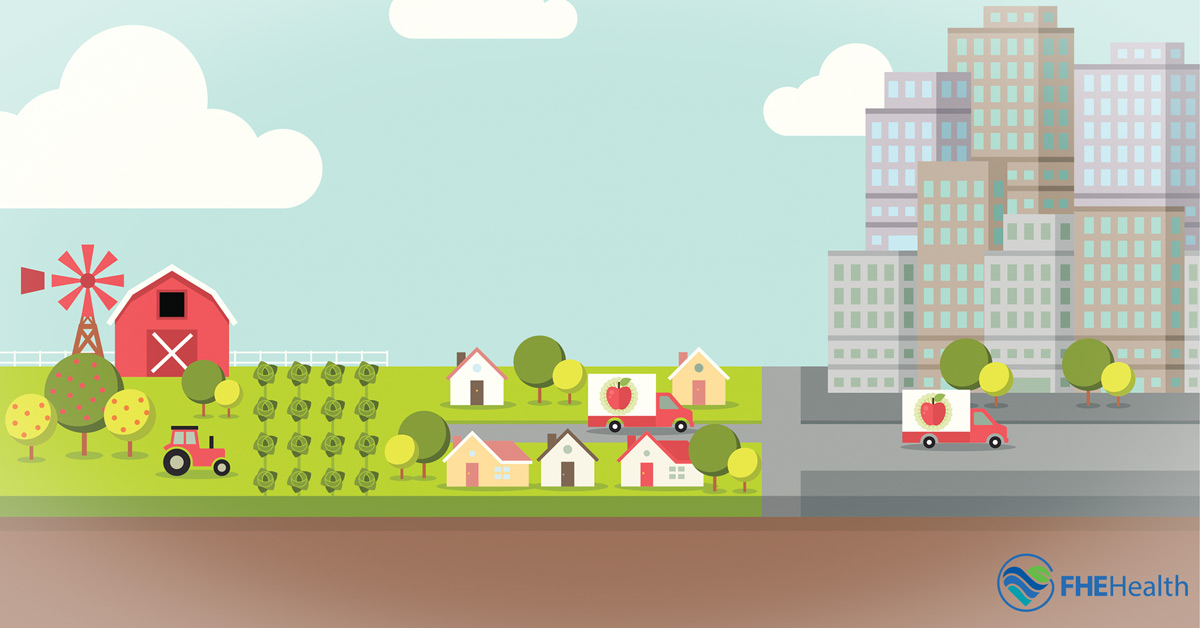
With greater mental health awareness comes a better understanding of the urban effect on mental health. This understanding has resulted in the idea of the “anxious city” — meaning metro areas are thought to make inhabitants prone to conditions like anxiety and depression.
For many, a change of environment is the key to overcoming city anxiety. In 2020 alone, the U.S. Census recorded significant population losses in cities, along with major growth in rural areas. But how do you know if moving to the country is the best solution for you? Here’s what you need to know to make an informed decision.
The Anxious City: Meaning and Background
Cities offer direct access to people, places, and opportunities that you might not find in the country. But packing so much into such a small space isn’t always a good idea. Studies in recent years have revealed that city residents are over 20% more likely to develop an anxiety disorder and almost 40% more likely to develop a mood disorder than those in more rural areas.
But why is urban living so dangerous for mental health? According to experts, cities are extremely stimulating. This stimulation keeps the brain in a constant state of fight or flight, which damages the psychological immune system. Over time, this environmental stress makes you more susceptible to mental illness.
The Value of a Healthy Environment
Whether you opt for country or city life, mental health matters. But it’s important to note that where you live has a significant impact on brain function. What you see when you step outside greatly influences your stress and anxiety levels, even on a subconscious level.
Your environment also determines how safe you feel daily. Overstimulation puts your brain right back into stress mode, leaving you vulnerable to mental illnesses like anxiety, which affects nearly a third of adults at some point in their lives.
The environmental factors of mental illness are extremely powerful. For that reason, finding where you have the greatest peace of mind is an essential part of maintaining your mental health.
The Pros and Cons of City Life
The differences between city and country life are obvious. But each environment has its own set of pros and cons. Here’s what you can expect when you live in the city.
Pros
Cities draw people to them mainly for the opportunities they provide. Be it work, school, or leisure, cities offer more choices and, with them, more freedom. City job markets typically have more options than rural ones, and these might come with higher salaries.
Cities also tend to be more diverse — such as San Francisco, one of the most anxious cities in the country. With all types of humans in a single area, you’ll get to know people from all walks of life.
Cons
The fast-paced nature of city living isn’t for everyone. Greater opportunities come with a bigger price tag, which can lead to financial strain that may damage your mental health. Workplace competition and modern “hustle culture” can result in burnout or feelings of inadequacy.
Urban areas also tend to have higher crime rates than rural ones, which can make you feel unsafe outside your home, worsening your fight-or-flight response. Cities generally have more pollution than rural areas, which can increase your likelihood of developing a mental illness such as depression, according to some studies.
The Pros and Cons of Country Living
Just like city life, country living has its benefits and drawbacks. Depending on what you value most, a move to the country might be just what you need. To help you make a decision, here are the pros and cons of country life.
Pros
Reduced financial strain is one of the biggest reasons some choose to move to the country. In many cases, you’ll find the cost of living decreases the further away from the city you get.
Proximity to nature is another positive aspect of country living. Spending time outdoors can greatly benefit your mental health, especially without typical urban air pollution. A quiet spot in the country can even lead to better sleep habits, thanks to reduced light and lower noise levels. Plus, you’ll avoid the excessive stimulation that puts your brain permanently into stress mode.
Cons
For some, rural living results in a feeling of being cut off from society. It may be more difficult to get around, and you might not have access to the same hobbies and entertainment as you did in the city. This can add to your list of expenses, especially if you previously lived in an area where you could get around without a car.
Additionally, the country usually doesn’t offer the same opportunities as urban areas. If making strides in your career is what matters to you, the countryside might not have the resources you need. Fewer people also means less diversity in many rural areas.
Finding the Right Environment for You
So, should you move to protect your mental health? In reality, there isn’t a clear answer. The best place to live depends on numerous factors, including your professional goals, hobbies, and personal needs. For some, the country might provide a necessary change of pace, while others may find it stifling and secluded.
Before you pick up and move, it’s important to determine what matters to you most. Then, you can decide which environment is better equipped to provide it. And if you’re already struggling with your mental health in the city, it may be possible to heal without moving. Things like exercise, spending time outdoors, and building a supportive community can go a long way in recovering from a mental illness.
Where you live can greatly influence your mental health, and moving to a different space can have positive effects. But a change of environment might not be enough to cure your urban depression. For the times when you need some extra support, the team at FHE Health is standing by to help.






